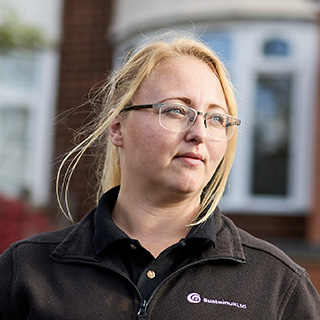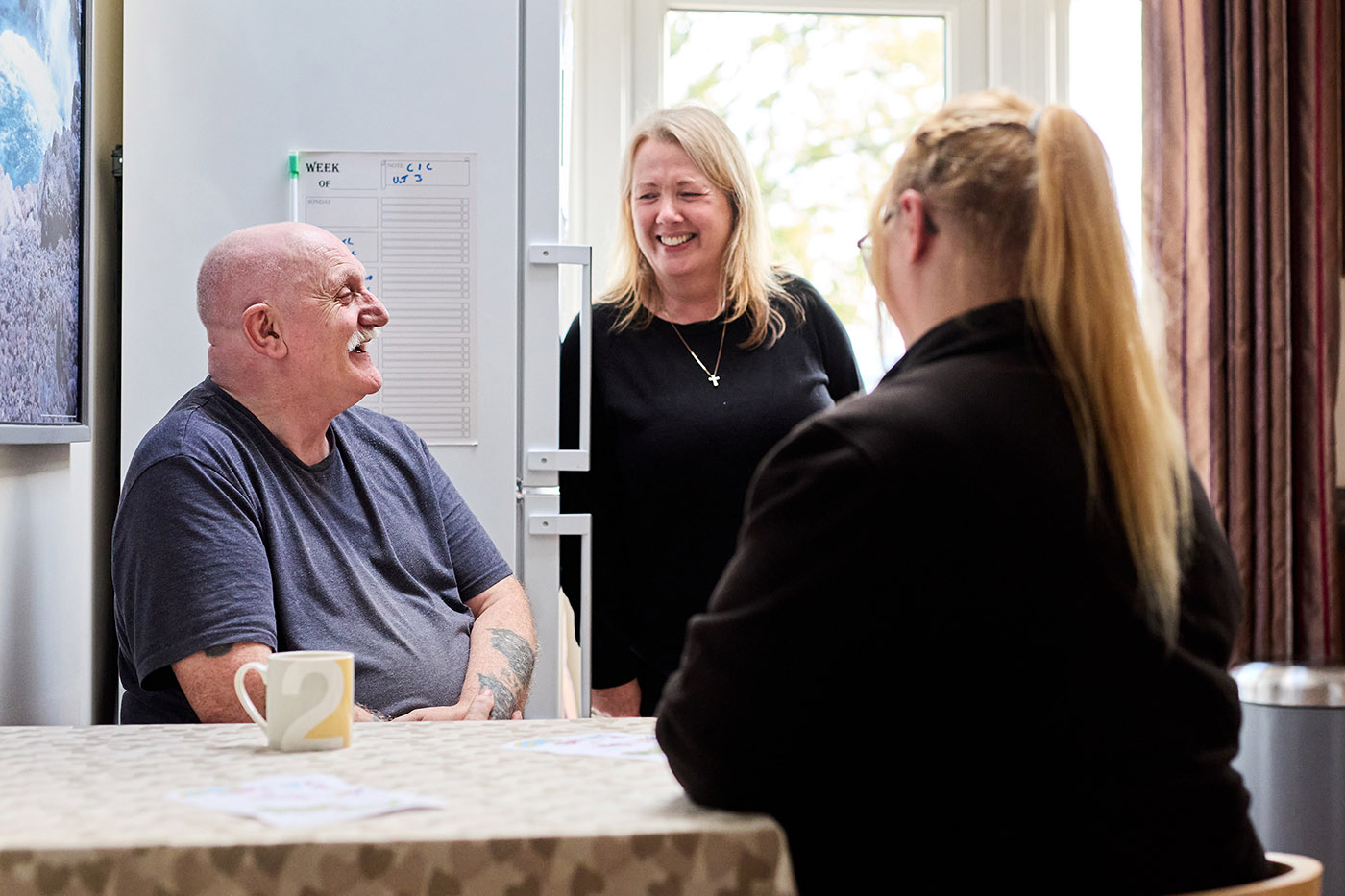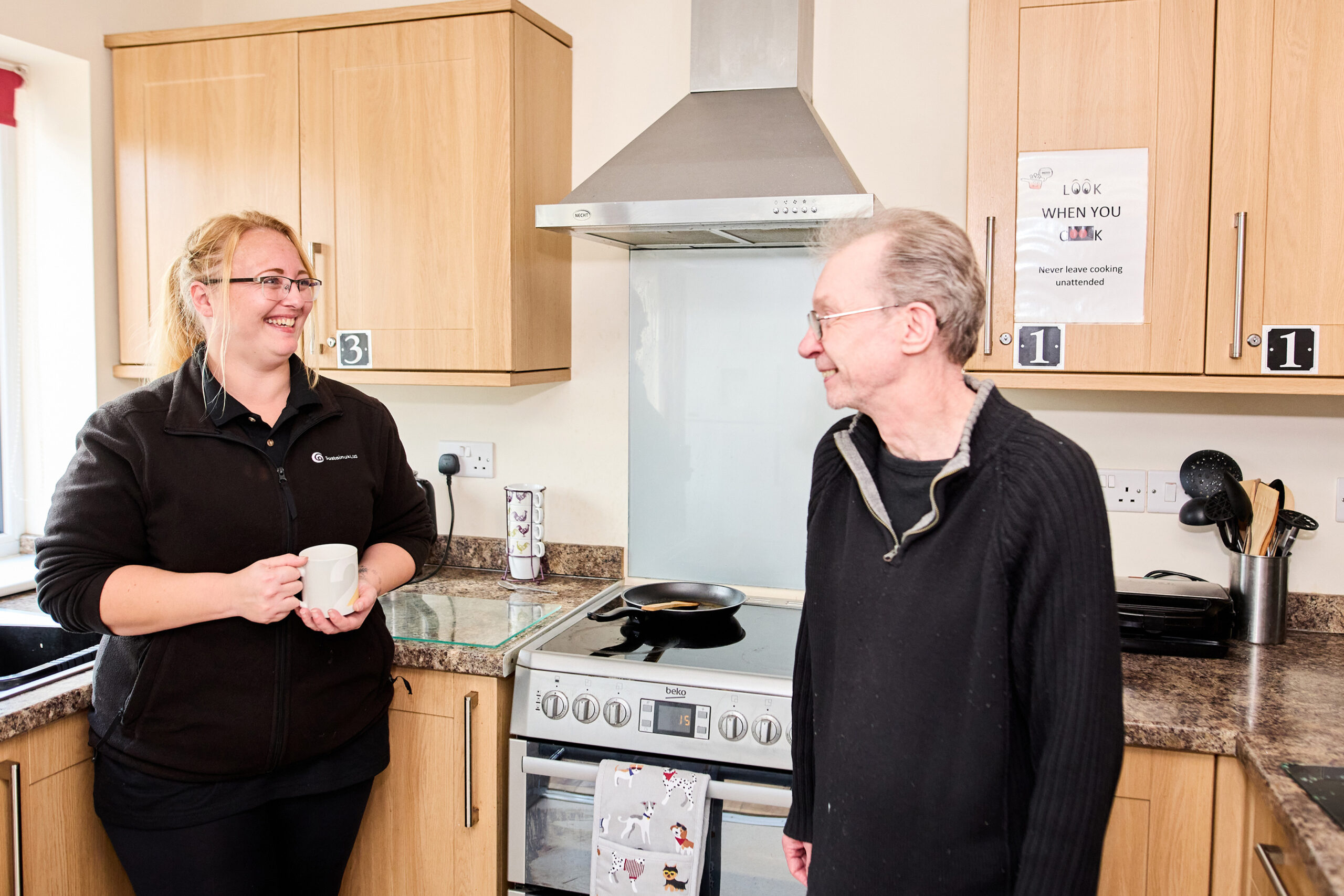
Laura leads a team of three colleagues who work with around 100 home providers across the West Midlands, prioritising tenant welfare, promoting resident safeguarding and maintaining property standards.
In this blog, Laura explains how Sustain supports tenants and why many vulnerable people need a secure and stable home to start getting their lives back on track.
Whether it’s family breakdown, job loss, a mental health condition, addiction, or often a combination of these, the fact is that every year thousands of people find themselves without a roof over their heads.
Without supported accommodation, most people in this position would be homeless, highly vulnerable and it would be very difficult for them to re-stabilise their lives.
We work with property owners across the West Midlands to give people somewhere safe, clean and welcoming to live, and the support they need to start re-building their lives.
It is Sustain’s responsibility to set standards for accommodation and support, and a big part of my job is to ensure those standards are met and make a positive difference to people’s lives.

We ask our home providers to give a minimum of three hours support to each tenant per week — three times more than usually expected by Birmingham City Council.
The type of support varies depending on the tenant's needs. It might involve help with welfare needs, a friendly chat, or support with addiction recovery. The key is giving the support the tenant wants and needs — not what we assume they need.
Our housing providers employ the support workers. Sustain gives guidance, recommendations, and regular training — particularly for safeguarding and inspections teams.
Providers complete staff audits and share rotas so we can check support levels. If support isn’t where it should be, we advise, request more hours, or issue an improvement plan.
My colleagues and I meet tenants regularly so they know who we are. We want tenants to feel they can talk to us — either directly or via their support worker.
Many tenants arrive with difficult histories. Some aren’t comfortable using the phone, so we make the effort to meet them in person and build trust over time.

Great support workers are non-judgemental and caring. They need to be resilient — this job can be tough, but we’re here to stand by tenants and speak up for them when needed.
We operate with openness and transparency at Sustain, which empowers our team to do what’s right — not what’s easy.
Some tenants have been moved repeatedly, damaging their trust. Sustain gives tenants Assured Shorthold Tenancies (ASTs), unlike some providers who use short-term licences.
ASTs give people the stability they need to begin rebuilding their lives.
We don’t evict at the first sign of a problem — we talk to tenants and help them work through issues. Moving people on only shifts the problem elsewhere.
That said, we take action against persistent anti-social behaviour when needed. We’re members of Resolve and work closely with Birmingham City Council’s Exempt Team.
If you or someone you know is facing homelessness, you can find out how to apply for a tenancy here: https://sustainuk.org/how-to-apply/who-is-eligible/
We’re currently hiring. View job openings at: https://sustainuk.org/careers/